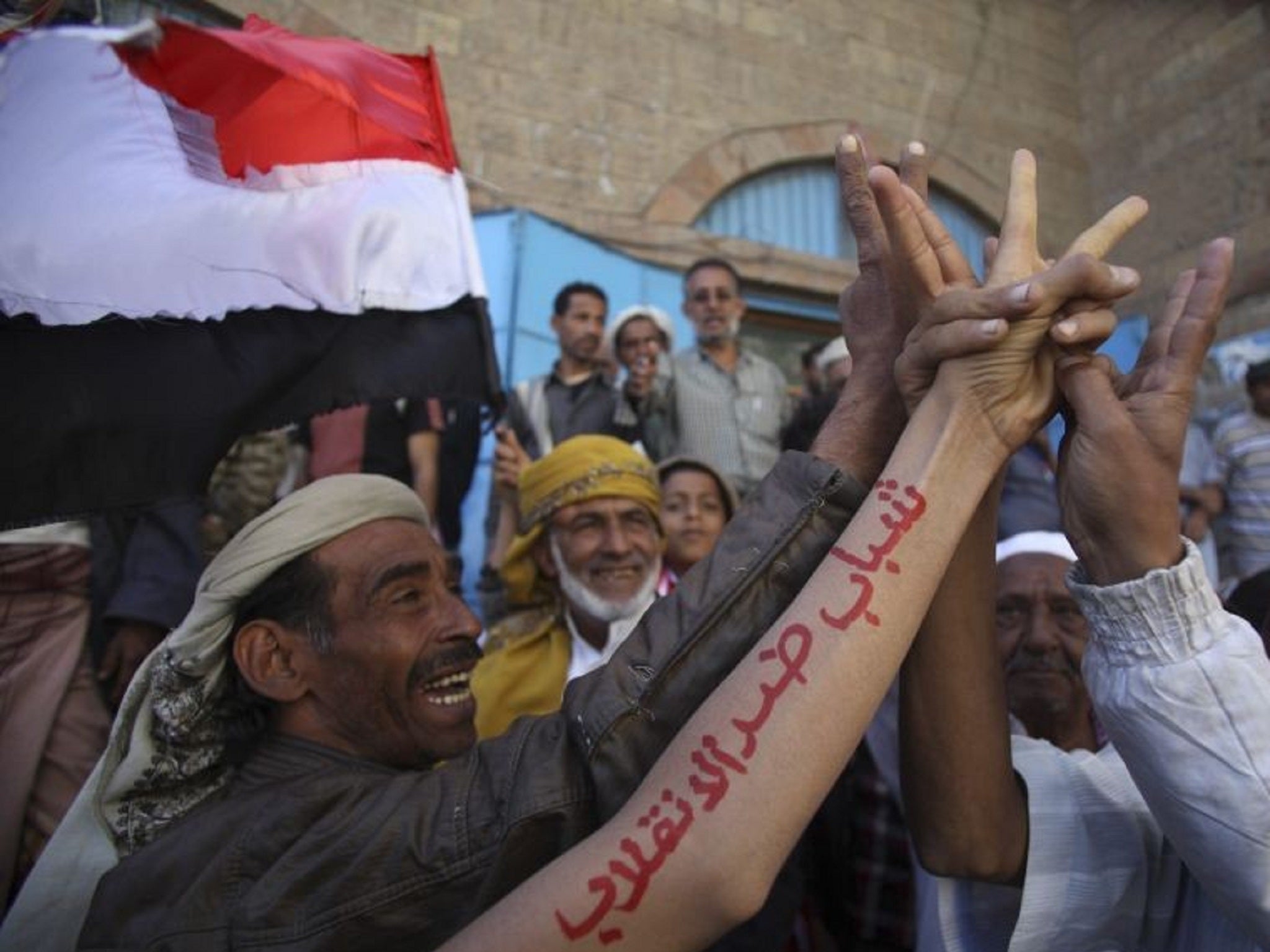Twenty six killed in Yemen clashes as thousands protest against Shia Houthi rebels
26 were killed in clashes between Shia Houthi rebels and Sunni tribesmen in the Bayda province of Yemen yesterday

Your support helps us to tell the story
From reproductive rights to climate change to Big Tech, The Independent is on the ground when the story is developing. Whether it's investigating the financials of Elon Musk's pro-Trump PAC or producing our latest documentary, 'The A Word', which shines a light on the American women fighting for reproductive rights, we know how important it is to parse out the facts from the messaging.
At such a critical moment in US history, we need reporters on the ground. Your donation allows us to keep sending journalists to speak to both sides of the story.
The Independent is trusted by Americans across the entire political spectrum. And unlike many other quality news outlets, we choose not to lock Americans out of our reporting and analysis with paywalls. We believe quality journalism should be available to everyone, paid for by those who can afford it.
Your support makes all the difference.Clashes between Sunni Muslim tribesmen and Shia rebels have left 26 dead in Yemen as thousands demonstrated in cities across the country against the rule of the Shia Houthi Movement yesterday.
In what was the second day of protests since the group took control of the government in a coup on 6 February, Houthi gunmen opened fire on protesters in the central town of Ibb, wounding four, said medics.
Activists meanwhile have been enraged by the death of Saleh-al Bashiri early on Saturday. He had been detained by gunmen as they broke up an anti-Houthi protest in Sanaa two weeks ago and was released to a hospital with signs of torture on his body. He died a few hours later in the early hours of Saturday.
The Houthis have banned demonstrations unless they are organised by the interior ministry, itself under the group's control, since they appointed Mohammed Ali al-Houthi as the new President, cousin of Houthi leader Abdel Malik al-Houthi.
Fears over instability have risen greatly since the coup, with the US, France, Germany, Italy and Saudi Arabia closing their embassies. Spain, Turkey and the UAE meanwhile have also stated they will soon follow suit, citing security concerns.
A draft UN resolution obtained by Associated Press demands that the Houthi rebels withdraw from government institutions "immediately and unconditionally", release the US-backed President Abd Rabbu Mansour Haddi and his cabinet from house arrest and engage "in good faith" in UN-led peace talks.
The Houthi's rise to power started last year as they began to descend from traditional heartland in the northern Saada province, fighting their way towards Sanaa and defeating tribal and military rivals along the way.
The group has rejected accusations that it wants to restore a Zaydi immamate, a theocracy that lasted for nine centuries until 1962.
Additional reporting by AP and Reuters.
Join our commenting forum
Join thought-provoking conversations, follow other Independent readers and see their replies
Comments